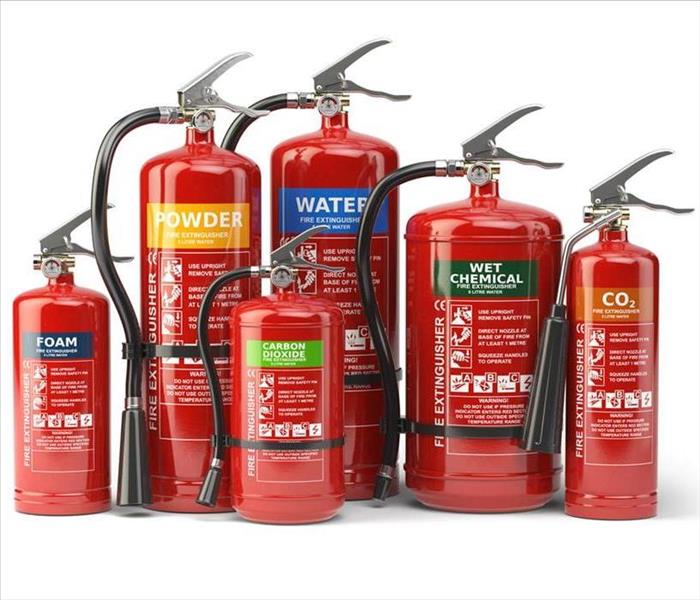How To Choose a Residential Fire Extinguisher
7/6/2021 (Permalink)
Types of Fire Extinguishers
A home fire extinguisher is an essential piece of fire preparedness equipment. Residential fire extinguishers tend to contain dry chemicals and may be rated class A, B, C, or a combination of these classifications.
• Class A extinguishers are suitable for ordinary combustibles.
• Class B extinguishers are designed for fires involving flammable liquids.
• Class C extinguishers are effective for electrical fires.
Other letter classes include D for combustible metals and K for cooking combustibles. Many home extinguishers are designated A:B: C, meaning they are capable of suppressing, if not putting out, all of these types of fires. An A:B: C fire extinguishers can help you protect your property and prevent yourself and other residents from sustaining severe fire-related injuries.
Whether you are upgrading your home safety equipment or just need to replace your extinguisher, in addition to selecting the class of extinguisher, you may also select either a disposable or rechargeable canister design.
- Disposable extinguishers have plastic valves and are intended to be used once and then replaced.
- Rechargeable extinguishers feature metal valves and cost more upfront, but less to refill than buying a replacement disposable extinguisher.
Try to strike a balance between the size and weight of the extinguisher you choose and your ability to wield it reliably in the event of an emergency. The weight of an extinguisher is determined by the chemicals in the canister and the canister materials.
With the right home fire extinguisher, you may be able to put out small fires before the firefighters arrive or at least suppress the flames enough so that all residents can safely evacuate. Only trained firefighters can determine whether a fire is fully extinguished and no longer poses a danger. You should still call 911 to report any fire incident in your home. If you do experience a severe fire, contact a residential damage restoration company located near Cleveland, TN.






 24/7 Emergency Service
24/7 Emergency Service
